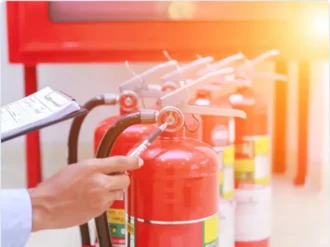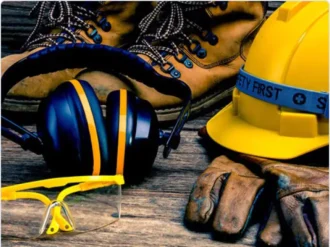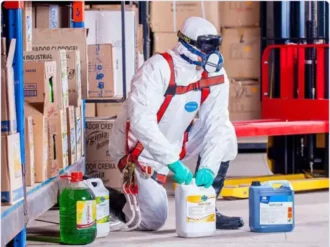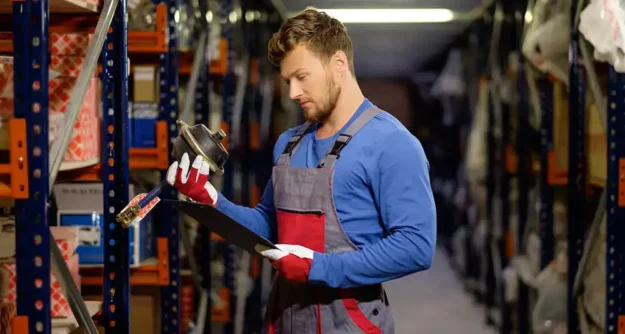Introduction
Factory workers make up a significant proportion of all manufacturing employees, but in spite of the influx of technology in this industry, they continue to be exposed to a series of considerable risks on a daily basis. From slips and falls to working with hazardous chemicals, flammable materials, and dangerous machines and vehicles, factory employees must be trained to assess and prevent common risks, as well as to respond correctly in cases of emergency.
Potential Hazards
The most common risks associated with factory work include:
Accidental Falls.
The majority of lost time claims and reported injuries in factory work are a result of slips, trips, and falls. These accidents might seem innocuous at a glance, but their consequences can be deadly in an environment where toxic chemicals and dangerous machines and vehicles are omnipresent. In addition, some factory workers may be required to climb ladders or use boom-supported platforms to reach stored materials and goods. A fall from heights in these circumstances can prove to be devastating, which is why all employees must be aware of the risk of falling and the strategies they must implement in order to avoid the latter.Fires.
Controlled flames such as those used in welding or combustion are ubiquitous in certain factories, but even the slightest miscalculation from employees can sometimes lead to a fire outbreak. This is especially the case in factories where highly flammable materials are being handled or processed, but can also result from malfunctioning equipment or exposed electrical wires. Although small fires can often be put out by properly trained employees, an outbreak can quickly spread and cause both injuries and massive property damage if it is not contained rapidly.Poorly Handled Vehicles or Equipment.
Powered industrial trucks such as forklifts, platform lift trucks, motorized hand trucks, and other vehicles are indispensable in the manufacturing industry, but they can put the operator and all nearby employees at serious risk if they are handled carelessly. In addition, factory workers must often complete tasks alongside industrial machinery, which can lead to tragic injuries if not properly guarded. Electrical injuries are equally concerning for workers who handle such equipment and who must be rigorously trained to assess the latter prior to use.Exposure to Hazardous Chemicals.
Materials such as caustic cleaning agents, leaked battery acid, or flammable chemicals like ethanol are routinely used in most factories and can expose workers to a series of significant risks. In the majority of cases, direct exposure to any of these hazardous materials can lead to injuries of the skin and eyes, as well as to impaired respiratory function and chronic illnesses, and an increased risk of fire outbreaks.
Incident Prevention
A combination of rigorous training for all employees, properly maintained personal protective equipment, and company policies is the correct approach to incident prevention in factory work. Many employees are not even aware of the risks they face on daily basis at work, which means that they cannot foresee and thus prevent accidents. As such, the first step towards a safer work environment is to ensure that all employees are properly trained for their jobs.
In addition, the use of personal protective equipment must be mandatory when certain hazardous tasks are being performed or dangerous materials are being processed. However, it is not enough for workers to have access to such gear. In order to effectively avoid injuries, employees must also learn how to choose the right equipment and how to maintain it when not in use.
Finally, company policies can have a great impact on the safety of working in a factory. For example, it has been shown that when supervisors promote efficiency and a fast turnaround over everything else, employees are more likely to cut corners and make mistakes that can cost them their livelihood. Not only is this a dangerous practice for workers, but it usually also leads to hefty costs due to property damage.
Recommended Safety Courses



What You Can Do to Stay Safe
As a factory worker, the first step you must take to ensure your safety and that of your colleagues is to undergo rigorous safety training. Only once you are aware of the most common dangers associated with your line of work can you implement measures designed to prevent accidents and work-related injuries. In Canada, it is your employer’s legal responsibility to ensure that you have access to the necessary safety courses.
For a complete list of training programs best suited for your job, please visit our Automotive and Manufacturing industry page.

